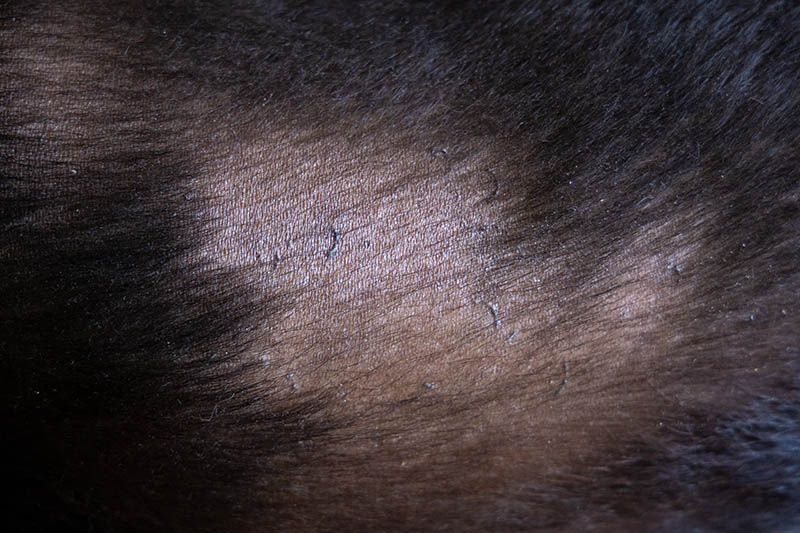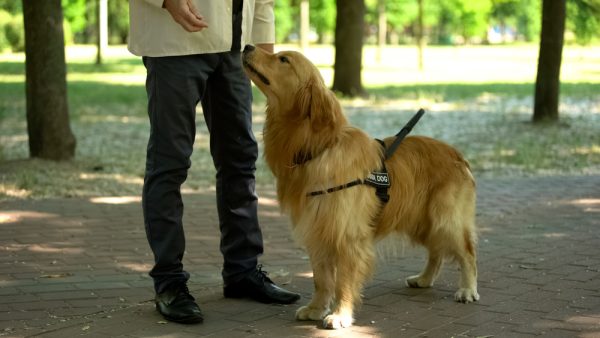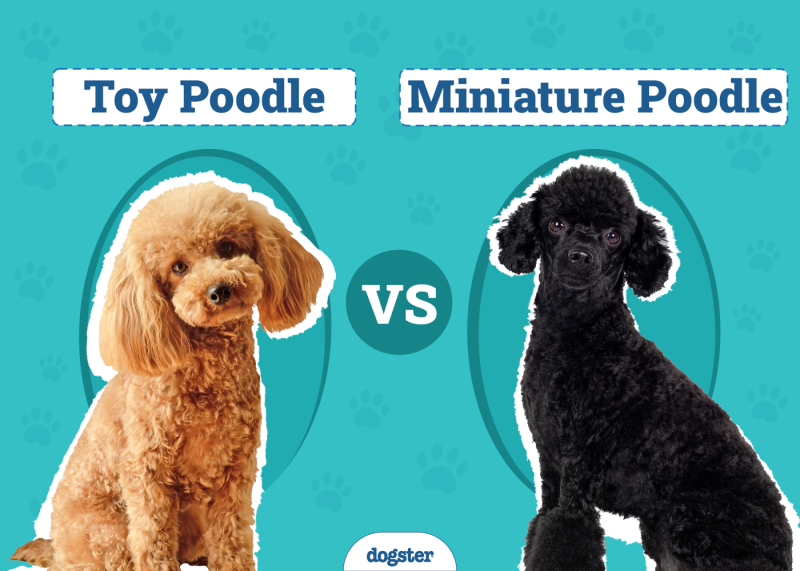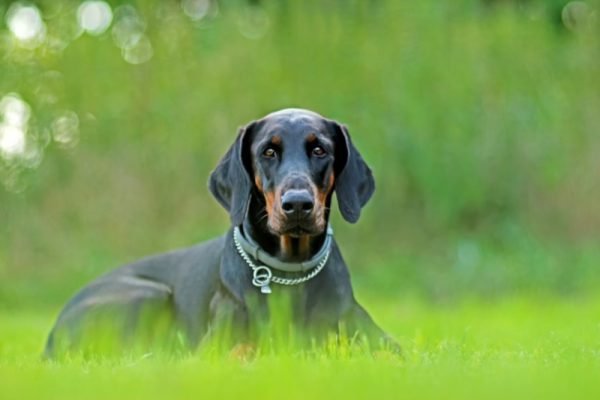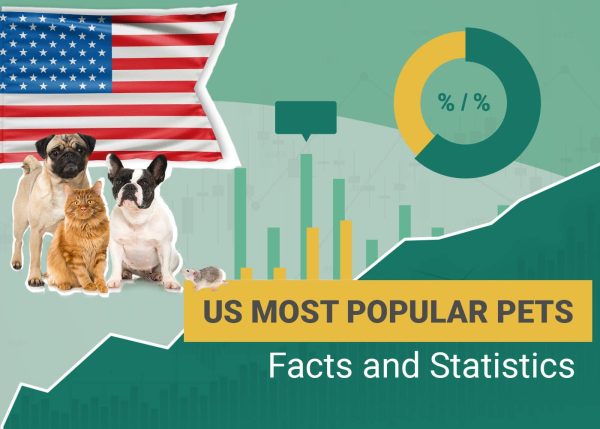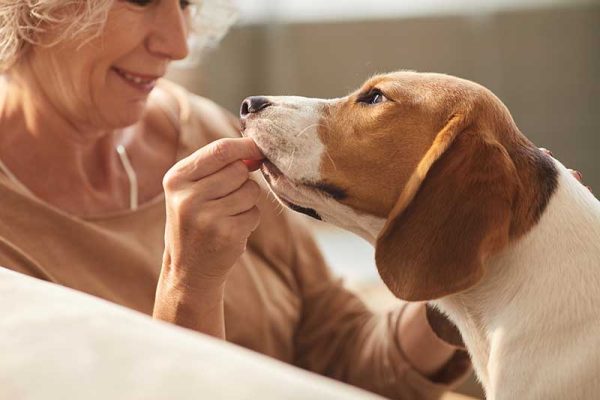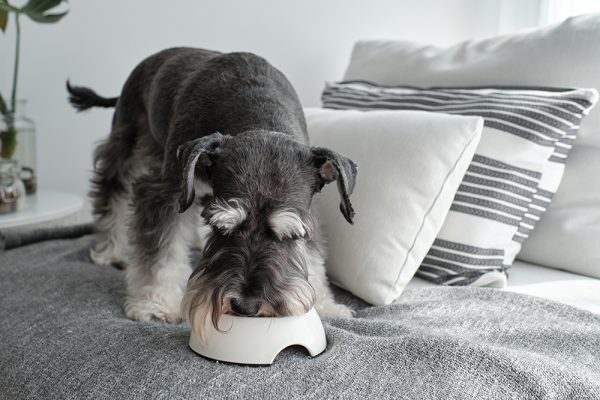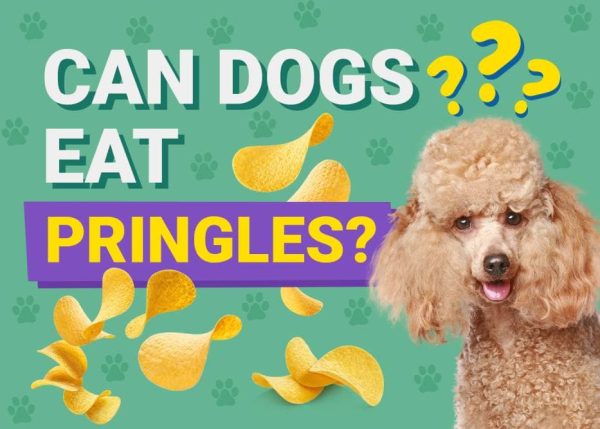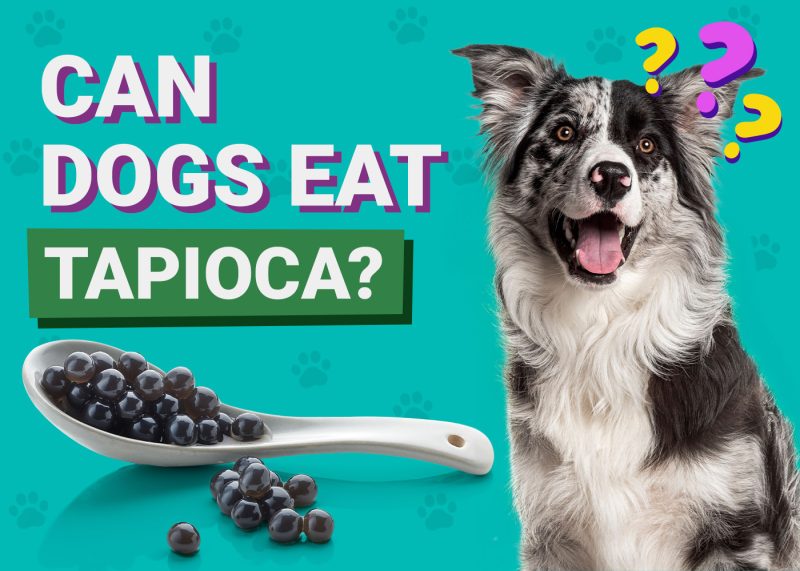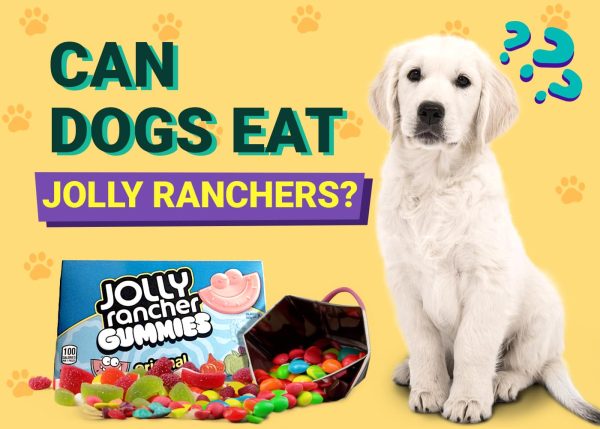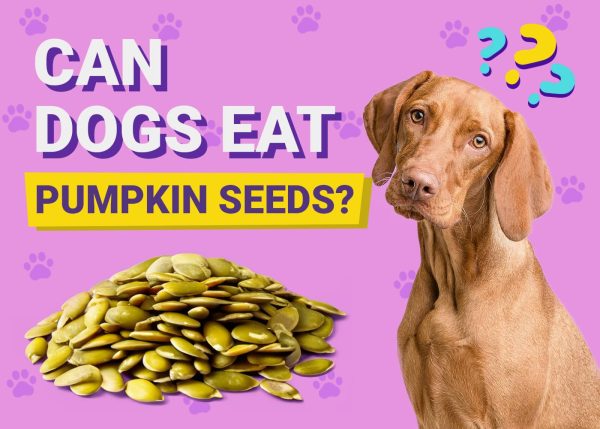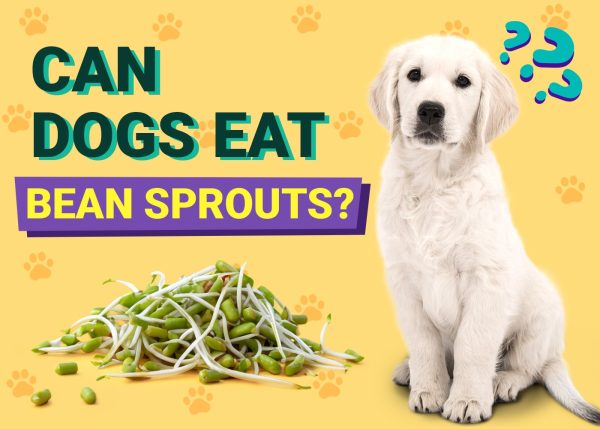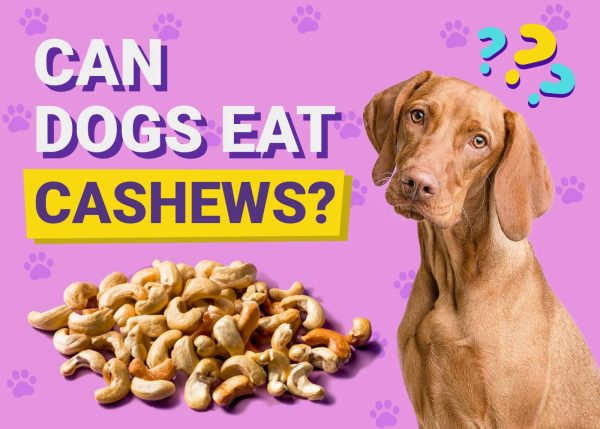In this article
View 4 More +A dog’s skin is supported by the food they eat. If they don’t eat the right diet, it can cause hair loss and other skin issues. Without essential vitamins, your dog’s skin and coat health may decline, eventually leading to hair loss. Certain vitamin deficiencies can lead to hair loss in dogs—vitamin A, biotin, and vitamin E.
Two minerals are also related to your dog’s coat health. Copper deficiency can lead to a dull coat and loss of normal pigment, giving the coat a “washed out” appearance. In extreme cases, hair loss can occur in a patchy pattern. Zinc deficiency can also lead to dry, crusty, scaly skin and hair loss.
Some health issues can also lead to nutrients including vitamins not being absorbed or used properly by the body, even if they are present in adequate amounts in the diet. Dogs with these problems may need other treatments to correct the deficiency, or they may require supplementation.

Is Diet Linked to Shedding in Dogs?
We know a dog’s diet is linked to its coat health. The skin is the largest organ in the body and has a high turnover rate so nutrient deficiencies can cause skin and coat problems including loss of hair. However, even if your dog doesn’t necessarily have a deficiency, less-than-optimal levels of certain vitamins can cause excessive shedding. Minor nutritional problems often cause minor coat problems.
Commercial dog food should contain the minimum nutrients dogs need to survive. However, this doesn’t mean that every diet contains the optimal nutrients for your individual dog. The best diet for them will be based on their age, lifestyle/activity levels and any underlying health conditions.
How Do Vitamin & Mineral Deficiencies Occur in Dogs?
Deficiencies in vitamins A , E and B vitamins can cause skin issues, poor coat condition and hair loss.
Fat soluble vitamins A and E are critical for a healthy skin and coat. Deficiencies in either can cause hair loss and/or a dull coat as well as other signs such as scaly skin and skin infections. Likewise, B vitamins, especially biotin (vitamin H or B7), support healthy skin.
Minerals zinc and copper are also directly related to coat health, so deficiencies in these minerals often cause coat problems. It’s not uncommon for deficiencies to occur when a dog is fed a homemade diet over a long time. If you choose to feed your canine companion a home cooked diet, seek the help of a veterinary nutritionist to make sure it is balanced.
If you need to speak with a vet but can't get to one, head over to PangoVet. It's our online service where you can talk to a vet online and get the personalized advice you need for your pet — all at an affordable price!

Dogs often have backup stores of the necessary vitamins and minerals they need. Therefore, it isn’t a huge deal if they don’t receive the correct nutrients in their diets for a short period. Nutritional problems only occur after the dog doesn’t receive the correct nutrients for an extended time, leaving their reserves empty.
If your dog is on a high quality complete food these vitamins and minerals should be present in adequate amounts. The AAFCO outlines the minimal nutritional content each dog food must meet to be sold as a complete diet. If you feed your dog a complete diet, they should be eating these minimal nutrients. Rarely, poor commercial diets can cause nutritional deficiencies.
Deficiencies can also occur due to underlying health problems that cause nutrients to not be absorbed properly. In this case, even by consuming the proper diet, a dog can still have nutrient deficiencies.

Do Macronutrients Affect a Dog’s Skin & Coat?
Dogs need adequate protein for their coat to stay in tip-top shape. Hair is 95% protein and certain amino acids are especially important. A large portion of a dog’s daily protein requirement is used for skin and hair production, protein deficiency causes thin, dull and brittle hair which can lead to excess hair loss.
While the AAFCO does also set minimum protein concentrations for dog food, not all dogs do okay on this minimum. In many cases, dogs may need more protein to thrive. Very active dogs often fall into this category, as they go through energy faster than other dogs. Puppies and growing dogs need even more to promote healthy growth (which is why you should always feed your puppy food designed for their life stage).
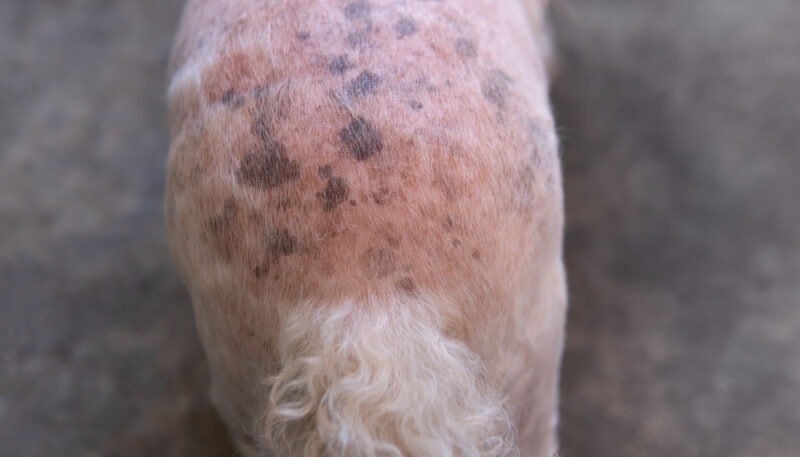
What About Essential Fatty Acids?
Essential fatty acids (EFAs) have a variety of important functions in a dog’s body including maintaining healthy skin and coat. If your dog isn’t getting enough EFAs from their diet they can develop dry, itchy skin and a dull coat, leading to hair loss.
The main types of EFAs are Omega 3 and 6, both of which have an important role in maintaining healthy skin, promoting a strong immune system as well as being involved in cell growth. As well as hair loss the most common signs of a deficiency are dry, flaky skin, a dull coat, and skin rashes.
These fatty acids can help even if the underlying cause of hair loss isn’t a deficiency. Omega fatty acids are anti-inflammatory, allowing them to help with many skin issues. They may also help reduce itchiness, which can lower shedding. While the underlying problem must be fixed, adding omega fatty acids to your dog’s diet can help.
Some diets are richer sources of these EFAs and supplements are also available. Your vet will advise you on choosing the right food or supplement.
What Vitamins Help with Hair Loss in Dogs?
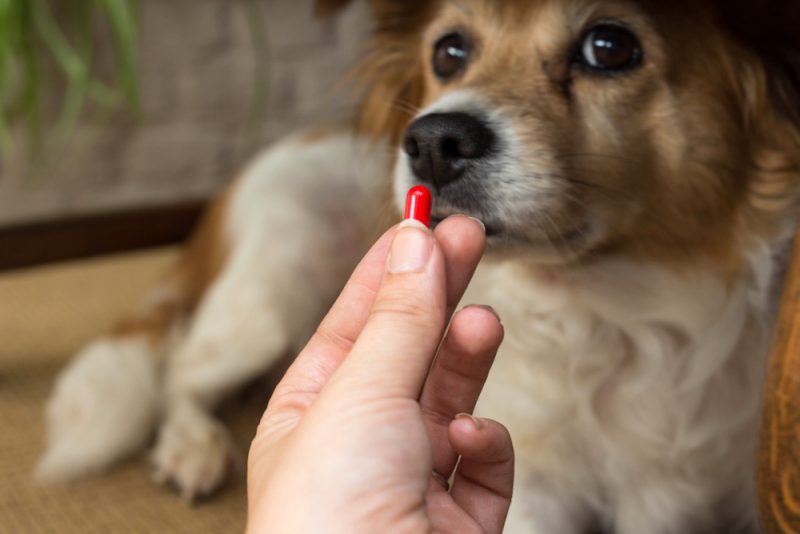
If your dog begins losing hair excessively, you must visit your vet. There are many causes for hair loss in dogs and understanding the why is vital to treatment. They can run tests to determine any potential deficiencies or underlying problems.
Once your vet determines why, you can supplement the deficient vitamin or provide treatment for the underlying problem. The hair loss should stop once the treatment begins, though it can take a few weeks for the vitamin supplementation to catch up with the hair loss. Supplementing vitamins without consulting with your vet is not advisable as excess amounts of certain vitamins and minerals can also cause issues.
Before giving any new vitamins or supplements to your dog, we recommend you consult a veterinarian for the best advice on which would be the best treatment for your pup.

Final Thoughts
Skin has a high turnover rate, so nutrient deficiencies including vitamin deficiencies can result in skin problems and hair loss. The main vitamins tied to your dog’s coat health are vitamins A, E, and biotin. Deficiencies are unlikely if your dog is healthy and on a complete and balanced commercial diet.
It’s worth noting that many factors, including genetics, allergies, hormonal imbalances, and infections can cause hair loss in dogs. If you suspect your dog is suffering from excess hair loss, it’s important to take them to a veterinarian for a proper diagnosis and treatment plan.
See also:
- How Long Will It Take for Dog Hair to Grow Back? Vet Approved Facts
- Why Does My Puppy Have Bald Spots? 8 Vet Reviewed Reasons
Featured Image Credit: Ri6ka, Shutterstock
